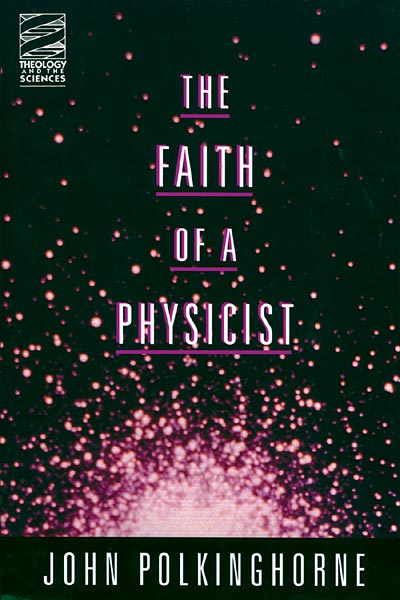The Faith of a Physicist: Reflections of a Bottom-up Thinker
"It has become fashionable to write books with titles such as
Religion in an Age of Science (Barbour), Theology for a
Scientific Age (Peacocke), or Theology in the Age of
Scientific Reasoning (Murphy). They signify the recognition
that the interaction between science and religious reflection is
not limited to those topics (such as cosmic history) concerning
which the two disciplines offer complementary insights. It
involves also an engagement with habits of thought which are
natural in a culture greatly influenced by the success of science.
To take this stance is not to submit to slavery to the spirit of the
age, but simply to acknowledge that we view things from where
we stand, with all the opportunities and limitations inherent in
that particular perspective. . . . My concern is to explore to what
extent we can use the search for motivated understanding, so
congenial to the scientific mind, as a route to being able to make
the substance of Christian orthodoxy our own. Of course, there
are some revisions called for in the process, but I do not find that
a trinitarian and incarnational theology needs to be abandoned
in favour of a toned-down theology of a Cosmic Mind and an
inspired teacher, alleged to be more accessible to the modern
mind. A scientist expects a fundamental theory to be tough,
surprising and exciting.
"Throughout, my aim will be to seek an understanding based on a careful assessment of phenomena as the guide to reality. Just as I cannot regard science as merely an instrumentally successful manner of speaking which serves to get things done, so I cannot regard theology as merely concerned with a collection of stories which motivate an attitude to life. It must have its anchorage in the way things actually are, and the way they happen. . . . A bottom-up thinker is bound to ask, What makes you think this story is a verisimilitudinous account of Reality? The anchorage of Christianity in history is to be welcomed, despite its hazards. For me, the Bible is neither an inerrant account of propositional truth nor a compendium of timeless symbols, but a historically conditioned account of certain significant encounters and experiences. Read in that way, I believe it can provide the basis for a Christian belief with is certainly revised in the light of our twentieth-century insights but which is recognizably contained within an envelope of understanding in continuity with the developing doctrine of the Church throughout the centuries."
— from the introduction
"Throughout, my aim will be to seek an understanding based on a careful assessment of phenomena as the guide to reality. Just as I cannot regard science as merely an instrumentally successful manner of speaking which serves to get things done, so I cannot regard theology as merely concerned with a collection of stories which motivate an attitude to life. It must have its anchorage in the way things actually are, and the way they happen. . . . A bottom-up thinker is bound to ask, What makes you think this story is a verisimilitudinous account of Reality? The anchorage of Christianity in history is to be welcomed, despite its hazards. For me, the Bible is neither an inerrant account of propositional truth nor a compendium of timeless symbols, but a historically conditioned account of certain significant encounters and experiences. Read in that way, I believe it can provide the basis for a Christian belief with is certainly revised in the light of our twentieth-century insights but which is recognizably contained within an envelope of understanding in continuity with the developing doctrine of the Church throughout the centuries."
— from the introduction
- This item is not returnable
- Ships in 2 or more weeks
-
Quantity discount
- # of Items Price
- 1 to 9$29.00
- 10 or more$21.75
$29.00
